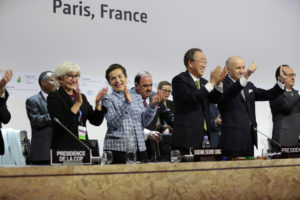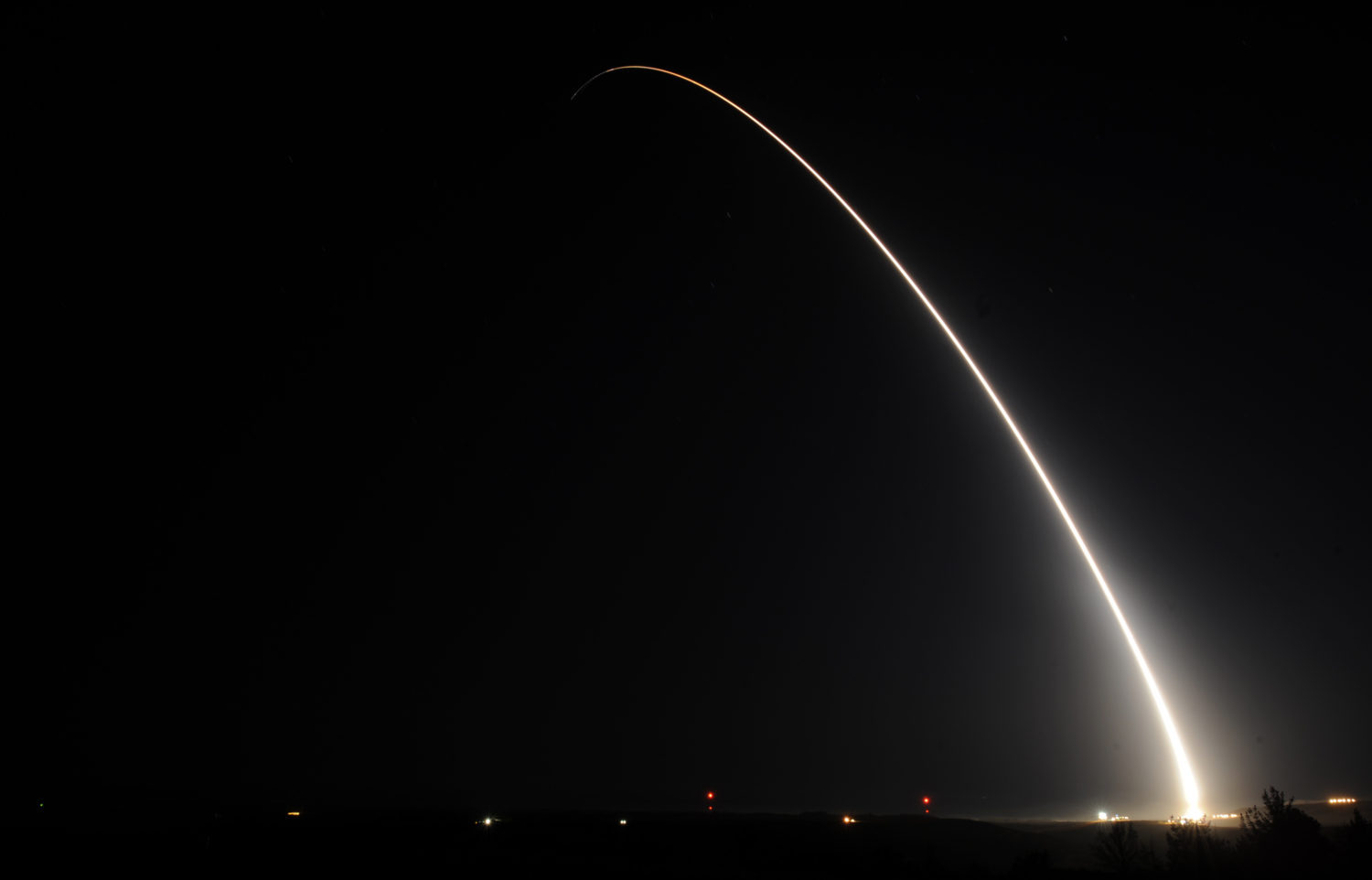
Global leaders applauding after the negotiations in Paris turn out successful
In Paris on the 13th of December last year, after hours of waiting, good news arrived at the ministers’ debate chamber. Soon after, the room was brimming with smiles and cheers. The Paris Climate Agreement had passed, hailed as a ‘major leap for mankind’ as it was signed by 194 countries. Fast-forward roughly ten months later and headlines heralded the news that after bilateral negotiations, China and US would ratify the Paris Agreement before the G20 meeting in Hangzhou, China. This was a surprisingly fast move by the two countries who have been unable to find common ground on most other issues. The progress gave hope that this agreement, officially titled the 21st of the Conferences of the Parties (COP) series, would be effectively implemented around the globe. Surely, considering the poor track record of former climate change agreements, the Paris Agreement seems to be a breakthrough. The COP’s earlier attempts, notably Kyoto 1997 and Copenhagen 2009, have become associated with disappointment.
In contrast to the failure of earlier COPs, the Paris Agreement is seen as a game changer. Some journalists have responded positively, writing that China and US have decided to take on their respective responsibilities as the biggest polluters, others argued that the odd combo knew their presence would pressure other countries into the agreement. However, typically in environmental agreements, countries have their domestic interest as their first priority. Considering the price of climate change on countries’ taxpayers and industries, political leaders are resistant to taking on that blame during their term in office.
China’s swift acceptance could be seen as the result of a few issues that finally have come to outweigh the economic burden. Firstly, taking into consideration China’s past involvement in climate treaties, they could no longer pull off the ‘poor developing nation’ card that had been used to skirt responsibility during the Copenhagen and Kyoto negotiations. Secondly, China cares about the visibility of its domestic issues and over the past few years, climate issues have become much bigger domestic problems. Nowadays there is the issue of climate migrants who are forced to relocate because of desertification of their traditional areas. The pace of migration will only step up a notch. These waves of migrants cause problems for recipient areas, especially urban regions already overcrowded and struggling with their own problems. China’s urban coastal region faces the massive issue of air pollution. In China’s effort to tackle its growing energy demand, fossil fuel emissions have become a threat to their air. While they are now investing heavily in renewables, local companies still build new coal plants despite governmental actions. The Paris Agreement could provide an effective tool for the government to stop this trend by using the international agreement as a scapegoat.
The US on the other hand has very different dynamics. The environmental political field has been highly polarized, with one side represented by environmental advocates and scholars and the other side representing industry. The US is still a big player in the oil business and the oil industry certainly has a discernable voice in domestic politics. However, oil prices keep dropping and the emergence of shale gas as a new competitor make the timing of the Paris Agreement more fitting than earlier. President Obama’s term was also near its end, likely increasing his willingness to do something impactful and legacy enhancing. He has taken on climate issues in several ways, such as recently ending oil drilling in the Arctic Ocean. Also, with the chance, as distant as it once seemed, that a Republican presidential candidate might win, someone who has been vocally unwilling to comply with the agreement, he may have felt pressure to push forward with its ratification.
Actually, he was so determined to go forward with the Paris Agreement that the Republican Congress has loudly opposed his determination to push it through. In the past, during the Kyoto Protocol, Democratic President Clinton signed the Protocol in 1997 only to have a Republican Congress decide not to ratify it. Later on, President G.W. Bush trashed the agreement stating it was harmful to the American economy and its workers. However, the Paris Agreement, unlike the Kyoto Protocol, is non-binding, which left a loophole for President Obama to exploit. In theory, a non-binding agreement does not need Congressional approval and could pass as an executive order. These dynamics show how different the Paris Agreement has been from its predecessors for the US.
Despite greenwashing, the Paris Agreement has already become the most successful climate agreement by coming this far. Heated domestic issues in the two biggest polluters in the world have become relevant enough for their leaders to collaborate with each other. Transnational corporations are investing in sustainable business and renewable energies, further pushing forward collaborative global climate efforts. What has yet to be seen is whether the non-binding agreement will be executed, especially by the US presidential successor who has claimed that climate change is a ‘Chinese hoax’ and is rumored to be looking for a way out of the deal.
- Good Leader, Bad Leader: What Should We Learn From Today’s Monarchies? - June 4, 2017
- Trickling Down? Reassessing Today’s Global Economy - June 4, 2017
- The Echo Chambers of the Internet - April 17, 2017






